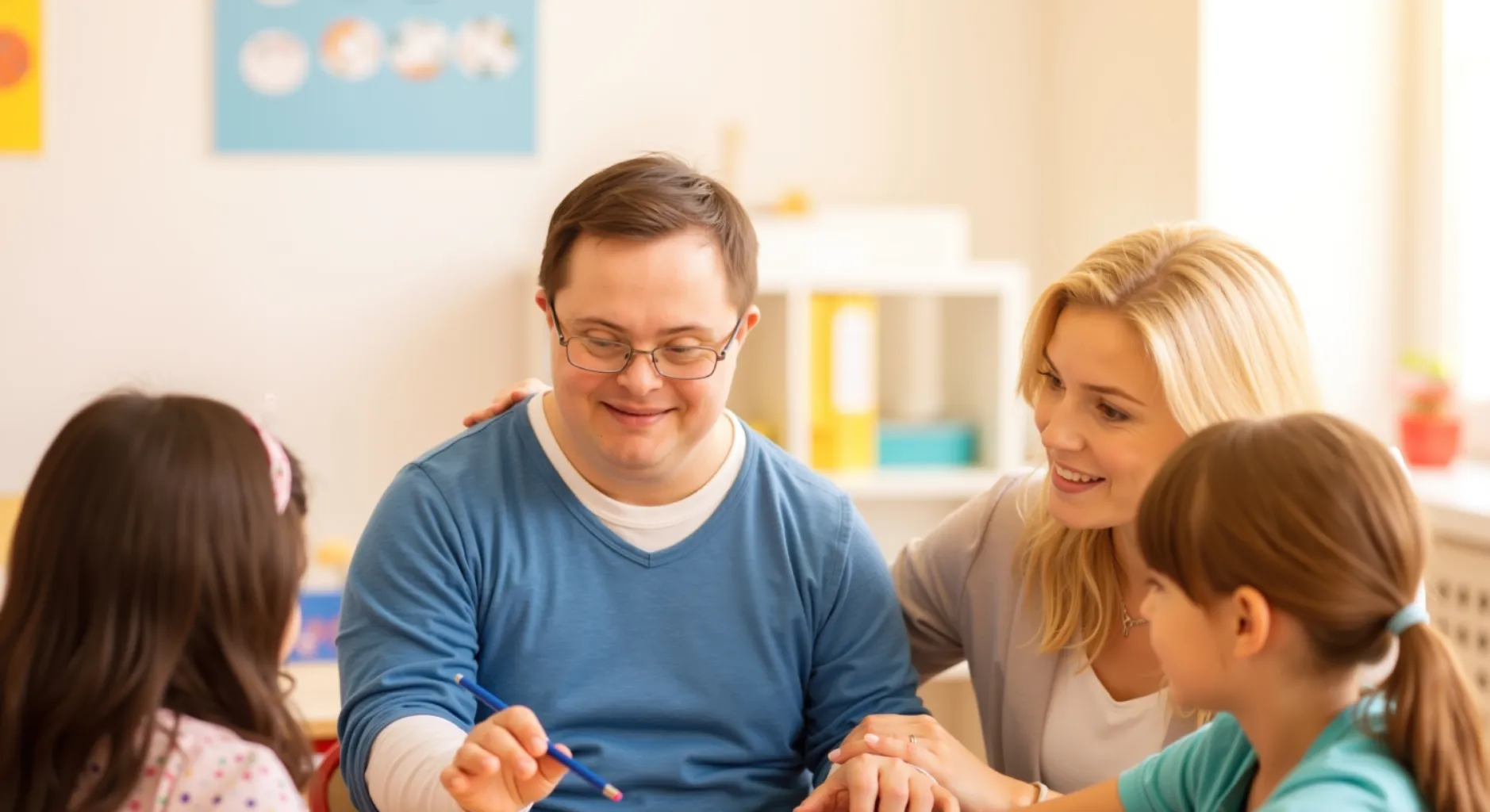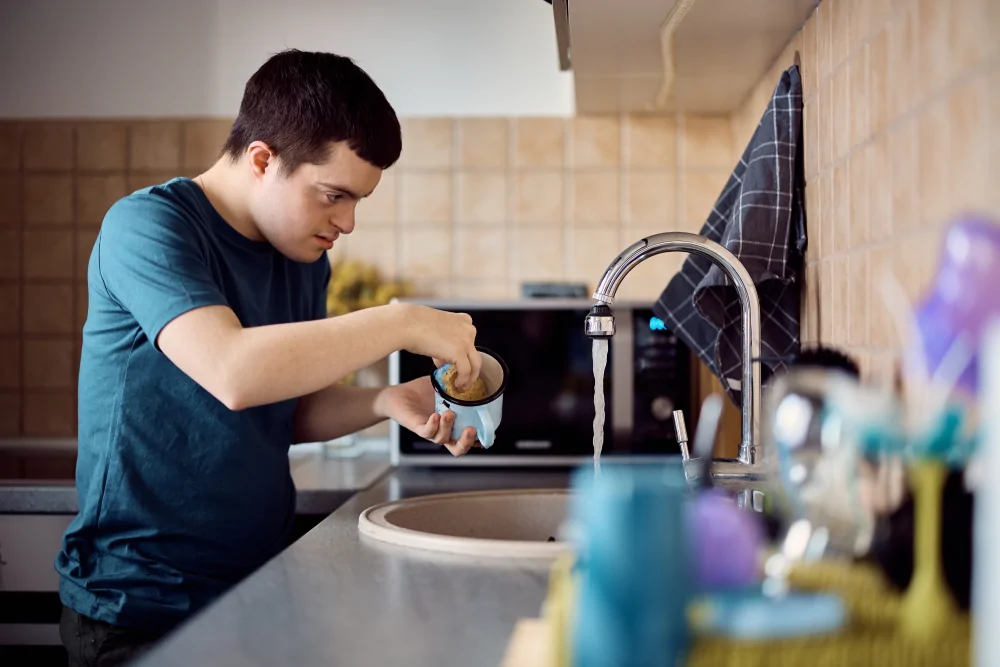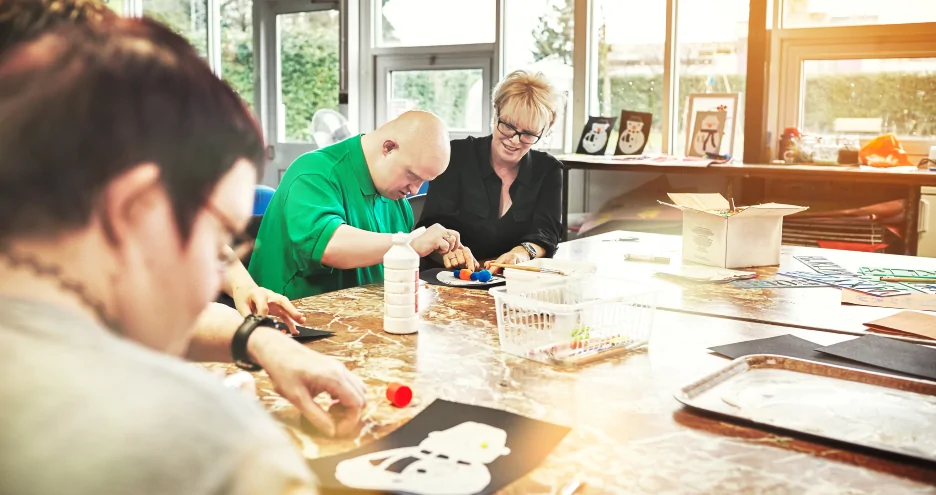Table of Contents
What is a Community-Based Day Program
Community-based day Programs (CBDPs) are daytime services that support adults with learning disabilities in structured, inclusive, and community-focused environments. These programs on weekdays emphasize personal development, independence, and meaningful community involvement. Rather than relying on institutional care, they occur in local centers, hubs, or purpose-built facilities to encourage real-world interaction and reduce isolation.
Participants engage in structured activities, social opportunities, and skill-building experiences tailored to their needs. The focus is on fostering inclusion, promoting independence, and helping individuals connect meaningfully with staff and the wider community.
Objectives of A Community-Based Day Program
Community-Based Day Programs’ (CBDPs’)primary goal is to help individuals live fulfilling, independent lives. These programs achieve this by teaching life skills, supporting social interaction, and encouraging participation in local events or activities. Individuals are guided based on their needs, interests, and personal goals.
Another objective is to provide structure and purpose to the participant’s day. This is especially important for those not in school or employment. Having a daily routine can significantly improve mental health and overall well-being.
Who Are These Programs For
Community-Based Day Programs (CBDPs) are tailored for adults aged 18 and older with learning disabilities. These disabilities may vary widely, from mild cognitive impairments to more complex conditions, and can include co-occurring needs such as autism, ADHD, or physical disabilities. The goal is to provide inclusive support that respects each person’s strengths and challenges.
CBDPs are not one-size-fits-all—they adapt activities and goals to match the individual’s abilities and aspirations. Whether someone requires minimal assistance or ongoing support throughout the day, the program is structured to help them thrive. This inclusive model ensures that a broad spectrum of individuals can benefit from engaging, purposeful, and community-focused experiences.
Types of Services and Activities Offered
A. Life Skills Training
Life skills are a significant focus, with activities that help participants manage daily tasks independently. These may include cooking, cleaning, handling money, using transportation, or organizing personal routines. Learning these skills boosts confidence and allows greater autonomy in everyday life.
Trainers and support staff provide step-by-step guidance using repetition, visual aids, and hands-on learning. Activities are paced according to the individual’s comfort and ability. The goal is to reduce dependence on others while gradually fostering self-reliance.
B. Social and Recreational Activities
CBDPs offer many fun and engaging activities, such as music sessions, art classes, and group games. These recreational options help reduce social isolation and create opportunities for friendships. They also encourage self-expression and emotional well-being.
The relaxed, inclusive environment makes it easier for participants to build communication and social skills. Group activities are structured to ensure everyone can participate regardless of ability level. Social development is an integral part of overall personal growth.
C. Community Engagement
Participants often go on community outings such as visiting parks, shops, libraries, or local events. These real-world experiences promote confidence, navigation skills, and community awareness. They also allow individuals to feel like valued members of their community.
Some programs also partner with local businesses and volunteer groups for additional activities. Individuals may volunteer, attend classes, or participate in community service through these partnerships. These experiences are empowering and help reduce the stigma around learning disabilities.
D. Communication and Personal Development
CBDPs support communication development through specialized tools like PECS or visual cues. These tools are essential for individuals with speech or language challenges. Staff work with participants to improve expression, comprehension, and interpersonal skills.
Personal development activities also include confidence-building, decision-making, and emotional awareness sessions. Individuals are encouraged to speak up about their preferences and make informed choices, which helps them feel empowered and understood.
Key Benefits of Community-Based Day Program Participation
A. For Participants
 1. Engagement in Purposeful Activities
1. Engagement in Purposeful Activities
Participants participate in enjoyable and meaningful activities tailored to their interests and abilities. These may include art, music, cooking, fitness, and community outings. Such activities promote creativity, skill development, and daily structure.
2. Improved Independence and Life Skills
Through guided experiences, individuals develop practical skills such as communication, personal care, and decision-making. Over time, these skills lead to greater self-sufficiency and confidence, and participants are empowered to take on more daily responsibilities.
3. Enhanced Socialization and Mental Well-Being
Being part of a group fosters connection, friendship, and a sense of belonging. Regular social interaction helps reduce loneliness and supports emotional health. Participants often show increased happiness and self-esteem.
4. Boosted Confidence and Community Participation
Gaining new skills and forming relationships encourages individuals to engage more in family and community life. Many begin to explore volunteer roles, community events, or hobbies with newfound confidence, promoting a more active and fulfilling lifestyle.
5. Safe and Supportive Environment for Growth
Day programs offer consistent routines, trained staff, and a welcoming atmosphere. Participants feel secure while being gently challenged to grow and develop. Each achievement, big or small, is celebrated and supported.
B. For Families and Caregivers
1. Peace of Mind and Assurance
Families know their loved ones spend the day in a nurturing and professionally supervised setting. The structured environment ensures safety, routine, and positive engagement, reducing anxiety and worry for caregivers during the day.
2. Time for Personal and Professional Responsibilities
While their loved one is in the program, caregivers can focus on work, errands, or rest. This time away supports their well-being and productivity, making balance more achievable in daily life.
3. Reduced Caregiver Stress and Burnout
Regular breaks from caregiving help prevent physical and emotional exhaustion. Support from trained staff lightens the load and shares responsibility, strengthening caregivers’ long-term ability to continue their role.
4. Open Communication and Collaboration with Staff
Families are kept informed through updates, meetings, and shared planning. They can work with staff to set goals, address concerns, and track progress. This transparency builds trust and strengthens the overall care plan.
5. Stronger Support Network and Family Well-Being
With professional support, families experience a more stable and positive home life. The individual’s progress often leads to improved family dynamics and shared joy. Everyone benefits from a more connected and supported environment.
What Makes a Quality Community-Based Day Program (CBDP)
1. Person-Centered Planning
Individualized Support Plans
A quality Community-Based Day Program (CBDP) begins with customized support plans tailored to each participant’s unique needs, interests, and goals. These plans outline specific activities, skill-building areas, and appropriate support strategies. Regular reviews help ensure the plans remain relevant and responsive to personal growth.
Respect for Autonomy and Choice
Participants are empowered to make daily choices and set long-term goals, fostering a sense of ownership over their lives. Programs encourage decision-making, problem-solving, and self-expression at every level. This respectful approach supports confidence, self-advocacy, and a more meaningful experience.
Goal-Oriented Structure
Daily activities align with each participant’s developmental goals, whether it focuses on social skills, independence, or community integration. Clear milestones and intentional routines guide participants toward achievable outcomes. Staff track and celebrate progress to maintain motivation and engagement.
2. Qualified and Compassionate Staff
Trained Professionals in Disability Support
Staff members should have relevant experience and specialized training in working with adults with learning disabilities. Their understanding of communication strategies, behavior support, and inclusive education is essential to effective care. Their skill set allows them to adapt instruction to various learning styles and support needs.
Empathy and Responsiveness
Compassionate, respectful staff help create a welcoming and emotionally safe atmosphere. They are attentive to both verbal and non-verbal cues and respond with patience and understanding. These relationships help participants feel seen, valued, and supported.
Ongoing Professional Development
Continuous learning is a hallmark of a high-quality team, with regular workshops and certification updates. Topics may include sensory sensitivity, and inclusive best practices. This ensures staff are ready to handle diverse and evolving participant needs.
3. Safe, Accessible, and Inclusive Environment
Clean and Well-Maintained Facilities
The program space should be safe, organized, and conducive to various activities. Cleanliness and functional equipment promote health and comfort. Emergency protocols and safety features must be in place to protect everyone on site.
Accessibility for All Participants
Facilities must accommodate physical, sensory, and cognitive needs, including ramps, calm spaces, and visual aids. Transportation options should also consider mobility and accessibility. The physical environment should help participants move comfortably and feel secure.
Inclusive and Respectful Atmosphere
The program should foster a culture where diversity is celebrated, and all participants are treated with dignity. Language, activities, and staff interactions should affirm each individual’s worth. No one should feel excluded because of their ability, background, or communication style.
4. Program Flexibility and Variety
Diverse and Engaging Activities
Participants should be offered a rich mix of activities, from creative arts to vocational training, tailored to various interests and skill levels. A combination of structured sessions and open choice supports both routine and autonomy. This variety keeps participants engaged and motivated.
Adaptability to Changing Needs
A strong program adjusts activities, support methods, and schedules as participant needs evolve. Staff remain attentive and responsive to signs of change in abilities or preferences. This flexibility ensures consistent support and a high level of satisfaction.
5. Commitment to Continuous Improvement
Participant and Family Feedback
Ongoing feedback from participants and families is vital to maintaining program quality. Surveys, check-ins, and collaborative planning meetings allow for two-way communication. Insights from this feedback are used to enhance services and tailor the program further.
Transparent Evaluation and Quality Standards
Strong programs evaluate their effectiveness through regular reviews, outcome tracking, and external assessments. These evaluations identify strengths and highlight areas for improvement. Leadership must be transparent and proactive in addressing findings.
Community Collaboration and Partnerships
Collaboration with local organizations, employers, and service providers creates more opportunities for inclusion and skill-building. Community connections help participants participate in real-world experiences like volunteering or job shadowing. These partnerships also raise awareness and promote advocacy for adults with learning disabilities.
Choosing the Right Community-Based Day Program
When looking for a Community-Based Day Program (CBDP), visiting the facility, meeting the staff, and observing activities in action are helpful. Ask questions about the daily routine, types of support provided, and the ratio of staff to participants. Transparency and open communication are key signs of a good provider.
Trial days or short-term placements can help determine whether the program fits well. This allows the participant and family to experience the environment firsthand. Choosing the right program ensures that the individual’s needs are truly met.
Common Myths and Misunderstandings
“Community-Based Day programs are just babysitting services.”
Many assume CBDPs supervise adults with learning disabilities without purpose. In truth, these programs are structured to support learning, personal growth, and skill development. Participants are actively engaged in meaningful activities, not passively monitored.
“Only people with severe disabilities need them.“
CBDPs are designed for various learning abilities, from mild to complex needs. They offer flexible support tailored to individual strengths and goals. Everyone, regardless of ability level, can benefit from structured daytime support.
“Participants don’t learn anything new.“
Day programs provide practical training in life skills, communication, and community navigation. Learning is ongoing and adapted to each person’s pace and interests. These programs aim to build independence and confidence through continuous development.
“Day programs isolate people from society.“
Rather than isolating participants, CBDPs actively promote community integration through outings, volunteering, and partnerships. They encourage real-world interaction and social engagement; participants are seen and valued in their local communities.
“Families should handle all support needs at home.“
While family involvement is significant, professional support is often essential for long-term growth and stability. CBDPs provide expert guidance, structured learning, and a break for caregivers. This shared responsibility improves outcomes for both individuals and their families.
Conclusion
Community-Based Day Programs offer meaningful, person-centered support for adults with learning disabilities. These programs provide a safe, enriching environment where individuals can build skills, make connections, and lead more independent lives. With the proper support, every participant can thrive and be included in the broader community.
Cortney’s Place is a shining example of a quality Community-Based Day Program designed to empower adults with intellectual and developmental disabilities. Located in the heart of the community, it offers diverse activities that foster independence, creativity, and connection. Cortney’s Place helps participants live fuller, more engaged lives daily through compassionate care and tailored support.
Want to Learn More or Get Involved
If you’re looking for a supportive, enriching environment for your loved one—or want to learn how to support our mission—Cortney’s Place is here. Visit our website, schedule a tour, or speak with our team about how we can help meet your needs. We can create a brighter, more inclusive future for adults with learning disabilities.

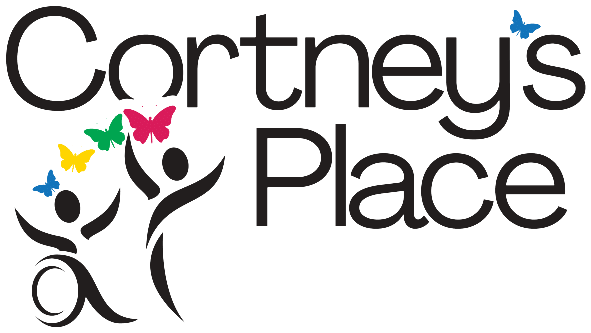
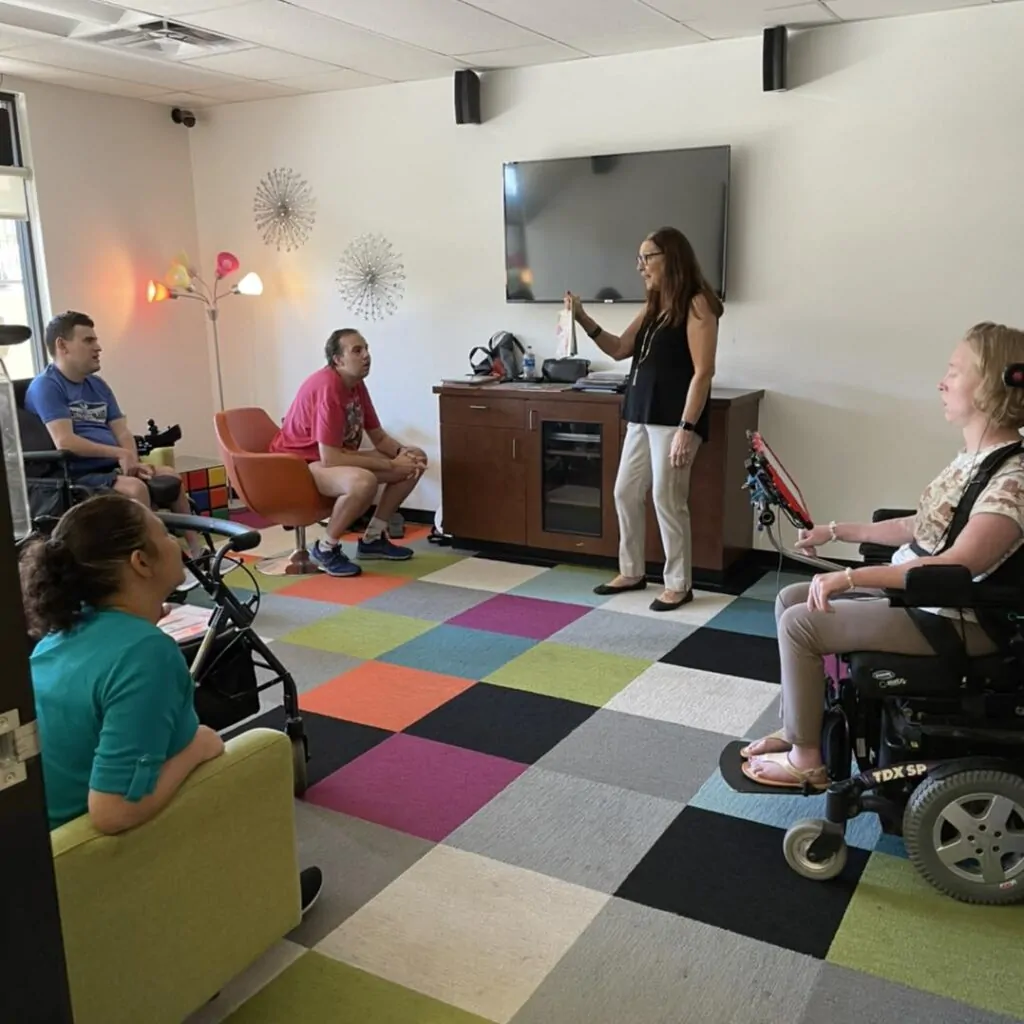
 1. Engagement in Purposeful Activities
1. Engagement in Purposeful Activities